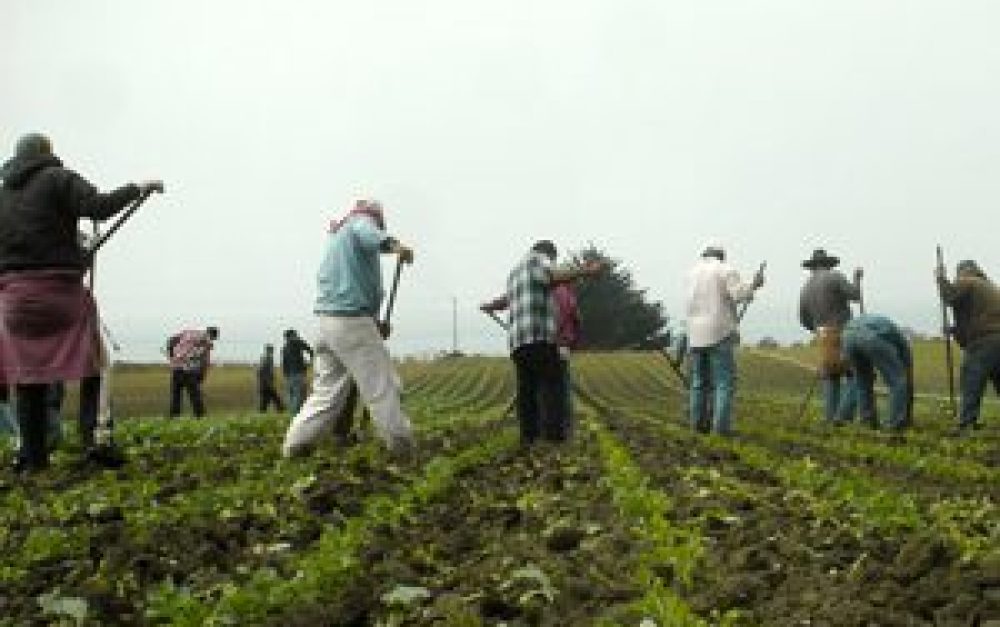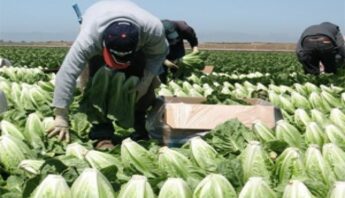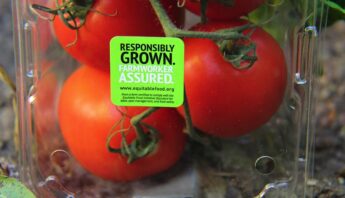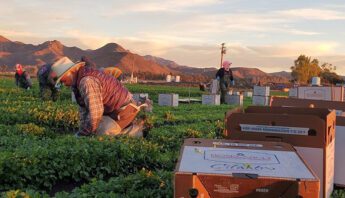This week, in a fitting tribute to Cesar Chávez, the union that the farmworker leader co-founded in 1962 joined with a Palo Alto-based food service company to release a groundbreaking report describing the current status of the nation’s 1.4 million farmworkers, and calling for fundamental changes to improve farmworker welfare.
The report is sobering, and its authors — United Farm Workers of America and the Bon Appétit Management Company Foundation — say their findings point to an urgent need for new, enforceable standards for farm work that can be supported by both individual consumers and socially responsible corporations.
Here are just a few highlights from the Inventory of Farmworker Issues and Protections in the United States:
- Health and safety standards are inadequate, and those that exist are rarely enforced.
- Farmworkers are exempt from most federal wage and hour standards, leading to rampant wage theft and other abuses.
- Children as young as 12 are legally allowed to engage in farm work, one of the most dangerous jobs in the country.
- Most farmworkers are ineligible for unemployment insurance and workers’ compensation.
- Farmworkers are explicitly excluded from laws that protect collective bargaining and free association.
Bon Appétit is well known for its pioneering efforts toward more sustainable food sourcing. The company’s vice president of strategy, Maisie Greenawalt, explains how they have long wanted to add farmworker welfare to their list of core values:
When we began questioning our suppliers about the human element in how the food was produced, we discovered they knew very little about the people who actually harvested it…. They thought that the lack of data about violations or abuses meant that there was no problem.
Greenawalt describes how their partnership with the Coalition of Immokalee Workers (CIW) in Florida opened their eyes to the fact that there was indeed a problem. The company was moved to help develop this report with UFW as a first step toward directing their purchasing power to operations that treat farmworkers with certifiable dignity and fairness.
Growing private sector support for farmworkers
There are others in the private sector responding to the mounting pressure to improve the social and environmental sustainability of the products they sell. Many companies have joined Bon Appétit in signing onto the CIW penny-per-pound pledge in support of Florida farmworkers. Several versions of sustainability standards, complete with third party certification, now exist or are under development that address environmental protections as well as worker wellbeing. They include the Food Alliance and Scientific Certification System’s Fair Labor Practices.
While these are great steps in the right direction, most certification programs have limited worker engagement in the implementation of the standards. One model standard — the Agricultural Justice Project (AJP) — provides for real democratic participation of workers, growers and buyers and achieves the environmental protections embodied in the organic label. While the AJP is a successful model, it, like other certification efforts, focuses on relatively small-scale production. What the country needs is something like the AJP model applied to industrial agriculture where the majority of the nation's farmworkers are employed.
And we're getting there. I believe joint reports like the Inventory reflect a growing movement in which consumers are voting with their food dollars and companies — from food service to food retailers — are responding by providing social and environmental improvements. As UFW President Arturo S. Rodriguez notes:
The greatest monument to César Chávez isn’t on a street sign or an official holiday, it’s having the courage to work for change that he instilled in his own people and in millions of others who never worked on a farm.








